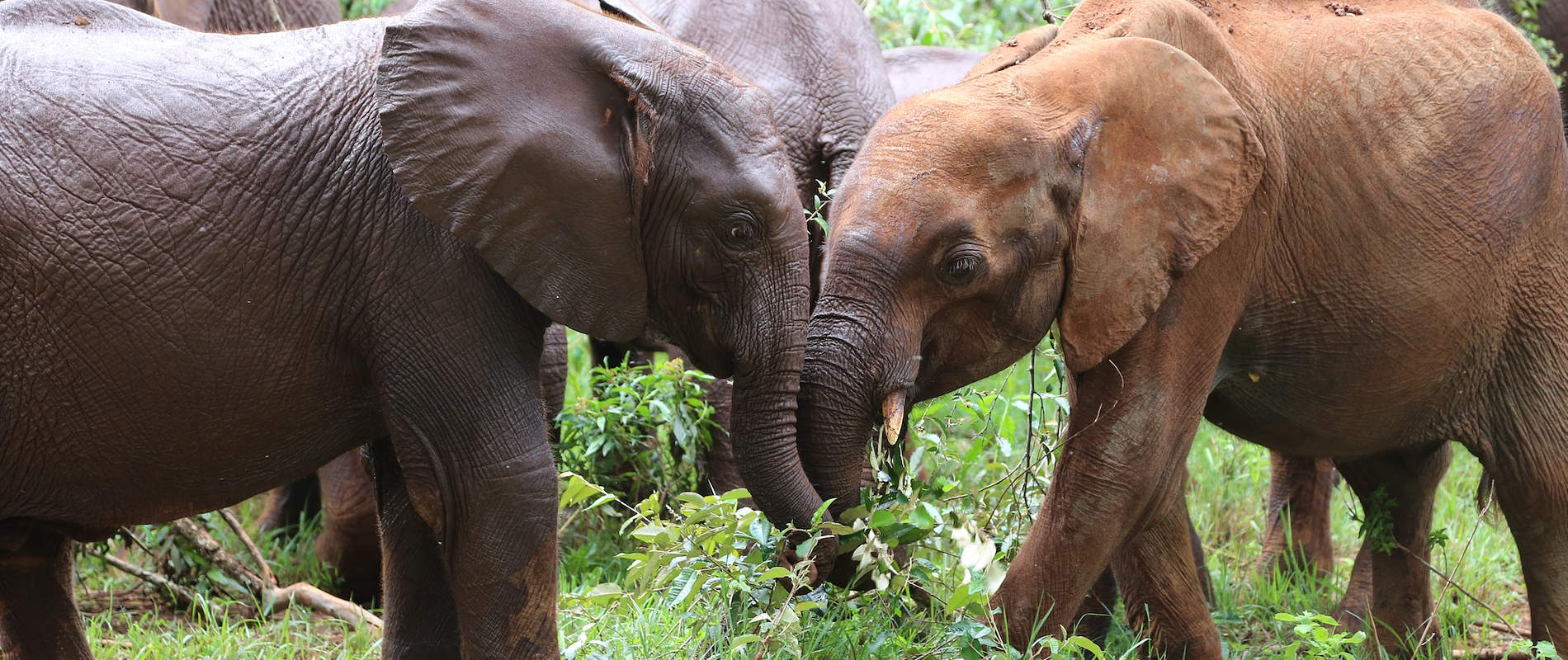In mid-May 2015, an orphaned elephant was reported on El Karama Ranch in Laikipia. A milk dependent calf approximately 2½ years old had been observed over a period of three weeks.
There was no evidence of a dead mother, and when the elephant herds passed through during this time he would sometimes join them, but always on the periphery and then he would be left behind once they moved on. A pride of 20 lions in the area posed a huge threat to this lonely little elephant who very definitely was without a family. His plight was reported to the authorities and to the Sheldrick Wildlife Trust. Given his size, it was unlikely that he would fit into an aircraft, but it was clear that with each passing day his condition was deteriorating. The SWT/KWS Meru Mobile Veterinary Unit was mobilised with KWS veterinary officer Dr. Rono and the capture unit rangers to mount a rescue.


Torrential rains throughout Kenya made logistics challenging with flooding rivers and even highways in Nairobi becoming raging torrents causing extreme traffic congestion. We were mindful that his journey to Nairobi by vehicle was going to be a long one without additional delays caused by the floods. Fortunately the day his rescue was planned, the 15th of May, there was respite from the rain. The unit captured the calf in the early morning, and they did this without anesthetizing him which was incredibly helpful because he was going to undergo a long journey recumbent, coming around from anaesthetic can slow bodily functions, bringing on bloat and other complications. The skilled capture unit rangers had the calf captured and restrained in no time and once loaded onto the veterinary land cruiser he was administered a tranquiliser to take the edge off his long journey.


The Veterinary unit began the journey without delay and finally the calf arrived at the SWT Nursery at 2.30pm. The heavy load was maneuvered into a stockade prepared with cut greens and given his final medication before lifting him to his feet. He had handled the challenging journey remarkably well. We placed him in a stockade next to little Alamaya, and he was comforted enormously by the presence of the other Nursery orphans whose stockades surrounded his on three sides and their presence settled him well. He fed on greens and began to take his milk from a bucket before finally trusting the Keepers enough to feed from a bottle. We called him Elkerama, with a different spelling to the ranch, but a name which will forever identify him with his place of his origin.


On day three we experienced a scare when he collapsed in a weakened state shivering all over. We were able to retrieve him through intravenous drips and he has not looked back. Because the torrential rains created a quagmire in his stockade Angela made the decision to let Elkerama join the others out in the forest very early on, when he still remained fairly wild. This was far preferable to him remaining in a wet and muddy stockade with greens constantly being cut for him. He was chaperoned out of his boma by the other Nursery orphans who were extremely nurturing and he seemed content in their company.


Milk times proved more challenging, because by this time he had developed an obsession with the white milk bottle. He would charge towards the Keeper and in some instances even knocked them down in an effort to gulp down his feed, so it was not long before a cunning tactic was deployed. There are a number of very strategic trees within the Nairobi Park forest that provide clever protection where the Keepers were able to feed Elkerama while remaining out of harms way protected by the trees lower branches.


As the weeks past his condition improved, and his rough behaviour subsided after exposure to how the other orphan’s behaved. We are thrilled with Elkerama’s progress, and he is alive today thanks to the concern and constant feedback from Wendy Andrews who monitored him closely while he was on Elkarama Ranch and was committed to saving him. He is now surrounded by loving new elephant friends and dedicated Keepers, who will usher him through the early vulnerable years, and he will again be lucky enough to live a full and wild life.







































